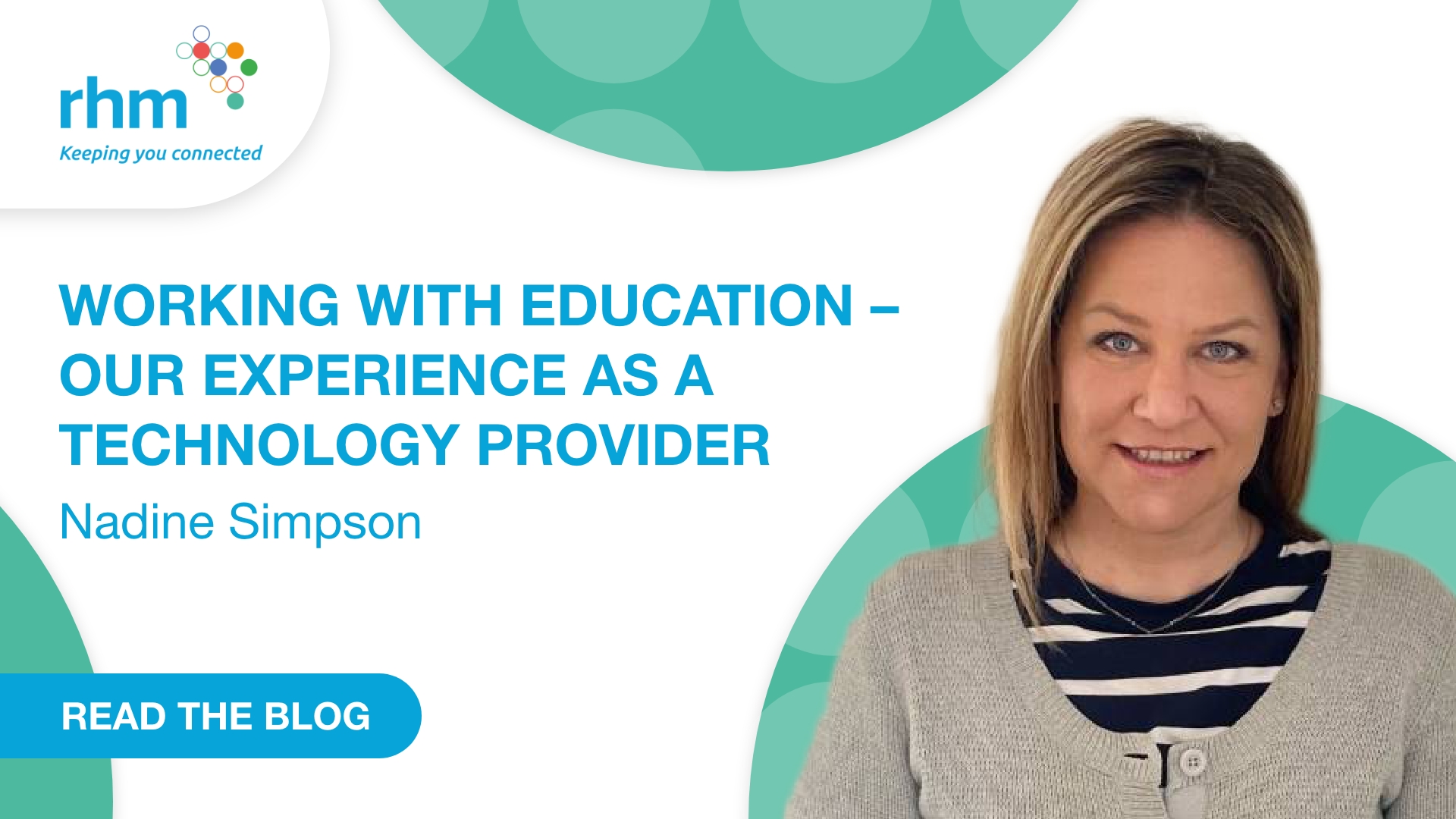
By Nadine Simpson, RHM Sales Consultant
Over the past 18 months, RHM have been working with more and more education sites. Whether it’s telecoms, connectivity, or CCTV installation – there’s a growing need for the education sector to modernise its technology. Investing in robust and efficient upgrades supports daily operations and allows schools to effectively manage emergencies.
We’ve helped school trusts and even colleges with a variety of technology needs, updating IT infrastructure and delivering enhanced communication systems that benefit pupils and parents as well as teachers and administrative teams.
Outdated infrastructure
Though the communication requirements for education sites are relatively basic compared to bigger enterprises such as call centres, schools across the country are facing the challenge of running outdated technology on old infrastructure.
A big change on the horizon is the switch-off. By December 2025, products running on PSTN or ISDN lines will no longer be supported. This includes landline, some CCTV, fax machines, and any internet that doesn’t run on full-fibre.
We’ve seen a big push to get ahead of this shift, and RHM have been helping sites migrate to future-proof technology, whether that’s full-fibre internet or cloud telephony packages. And the switch-off isn’t the only reason these spaces are upgrading.
Reliable and future-proof technology
Reliable internet and phone systems go hand in hand and are essential to keep schools safe and operational. GDPR compliance and safeguarding requirements are at the centre of this; sensitive data needs to be held securely, and schools need to be able to contact parents with important updates.
Cloud telephony
Cloud phone systems, or VoIP, make calls over the internet. In the next two years everyone will need to have moved to some form of cloud phone system. But change isn’t a bad thing, VoIP offers far more features than traditional on-premise communication systems.
Picture this – it’s a snow day, and the admin team of a primary school need to inform the parents of school closure. With a cloud phone system, staff can access their admin portal, set up on-hold messages and call divert to mobile. This means teams don’t need to physically be in the office to make phone calls and communicate with parents. Instead, they can handle all vital comms remotely.
And the flexibility doesn’t stop there. Each user extension has the choice of a physical desk phone, mobile app, or desktop with a headset. This allows users to manage calls from any location, whether
that’s on site or working remotely. Cloud phone systems also have call management features, such as voicemail to email, call recording and analytics, which improves efficiency as well as productivity.
Full-fibre connectivity
Because cloud phone systems run off the internet, it’s important your broadband connection is reliable. The move away from legacy lines has meant that the UK will eventually run on full-fibre. That means schools will be required to upgrade their connectivity. An added benefit, by future-proofing your internet, you’ll have a reliable, robust connection that can extend to external school buildings. We offer a range of broadband solutions for schools of all sizes, you can find out more here.
Announcement tools
A popular tool that schools are opting for as a handset feature is a speaker announcement service for emergency messages. Reception teams can quickly and efficiently announce urgent information over loudspeaker to all classrooms and phones.
Often, classrooms and hallway phones are only required to handle internal calls, but handsets are necessary for these areas.
So, what can you expect when you choose RHM for your technology needs?
The RHM approach
Each education site has its own unique needs and requirements, which means there’s no one-size-fits-all solution. Some schools have dated cabling, which requires upgrades before technology can be installed, others have out-buildings that don’t have connectivity to the main internet or IP.
This makes every project uniquely challenging. But with our extensive experience working with education, we know the common hurdles, and how to navigate them. That’s why our engineers conduct a free site survey, assessing your infrastructure and any limitations, including data cabling for IP handsets, or VoIP and fibre capability. We’ll walk you through the costs and installation process, providing suitable alternatives where necessary, such as an on-premise phone system with SIP trunking.
We make sure we give you all the information you need to make an informed decision. Our process is especially useful when presenting facts and figures, as well as a timeline, to decision makers and governors. And we’re here to provide you with ongoing support and aftercare once your products are up and running, because we understand the impact of downtime on education sites.
The education sector must keep up with the evolving technology landscape. Schools and colleges need to weather the storm of the switch off, but also choose future-proof solutions that provide efficient, adaptive, flexible communication.
From connectivity to communication, CCTV to business mobiles – we’re an experienced team that take the time to listen to your needs and find a tailored solution for you. Want to see how we’ve helped local schools embrace cloud telephony? Check out our recent case study. Want to chat to our team? Head to our website or call 0800 041041.
© rhm telecommunications 2024